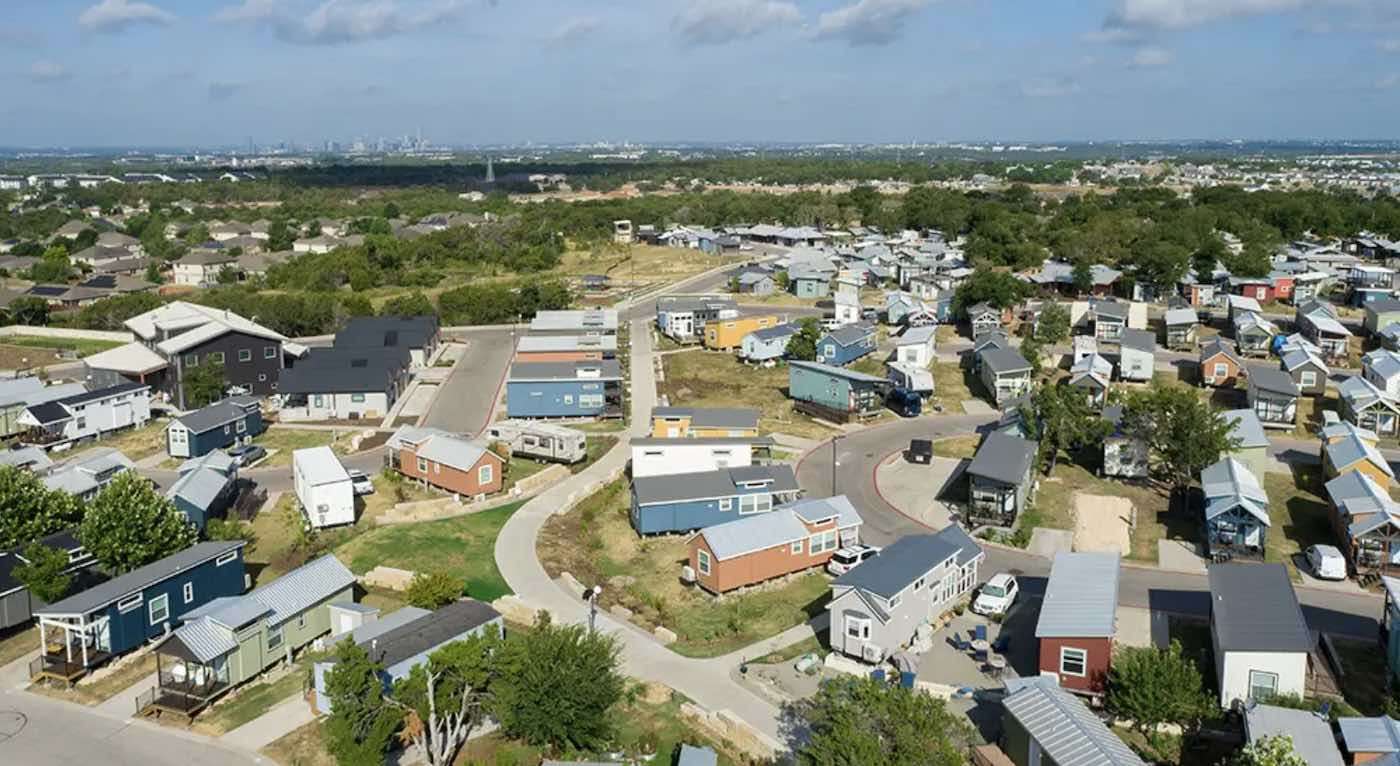Man Finds Largest Colorless Diamond in Arkansas State Park's Modern History
Evans saw what he thought was a piece of glass on top of a plowed ridge, picked it up, and stuffed it in his pocket.

In Travis County, beyond the zoning laws of Austin city, a village of tiny homes has been easing the chronic homelessness in Austin for years, but after the latest round of philanthrophic fundraising, it's slated to become one of the largest communities of its kind anywhere in the country.
In 2019, WS reported that Community First! Village opened up to renters on the outskirts of Austin with a mission to exclusively house and accommodate formerly homeless people so they can have the freedom and security to heal from their years spent on the streets.
In addition to hosting 100 RVs and 125 micro-houses, the village also includes community gardens, bee hives, workspaces, playgrounds, recreational areas, parks, kitchens, and a dozen other group facilities.
Residents are only required to pay between $200 to $430 per month, which many of them afford through jobs that they secured within the village.
The village was created by the Mobile Loaves & Fishes charity in 2014. Though the community space currently houses 200 formerly homeless residents, the organization began constructing additional facilities last year. Once complete, the village will be able to accommodate almost 500 people—which was about 40% of the Austin's chronically homeless population circa 2019.
In fall of 2022, the mastermind behind both the charity and Community First broke ground on an adjacent site that will take the number of tiny homes to 2,000, designed by architectural firms that offered pro-bono bids to design the best energy efficient homes.
"…No one's ever done what they're about to do," Mark Hilbelink, the director of Austin's largest homeless-services provider, told the New York Times.
In a big feature for the Times, Lucy Tompkins documents the stories of hope and recovery that some of the residents have lived through since moving to Community First!, which is run with a Christian ethic of "Neighborhoods of Knowingness."
All the new building projects were expected to be finished by the end of 2023, the organization predicted, which was powered forward with two $35 million windfalls: one from the American Rescue Plan, and a gift from the Michael & Susan Dell Foundation.
The U.S. Department of Housing and Urban Development approved the use of federal housing vouchers, which subsidize part or all of a low-income resident's rent, for the village's tiny homes, Tompkins reports, making the whole thing run with far less financial guesswork when it comes to the books, and should allow residents the time to build up a set of skills that could reward them with a more sustainable career path.
A dozen imitation villages have supposedly cropped up in cities around the nation, all following the path of neighborliness and sustainability put forward by Community First!
SHARE This Incredible Effort With Your Friends In Texas…
Be the first to comment